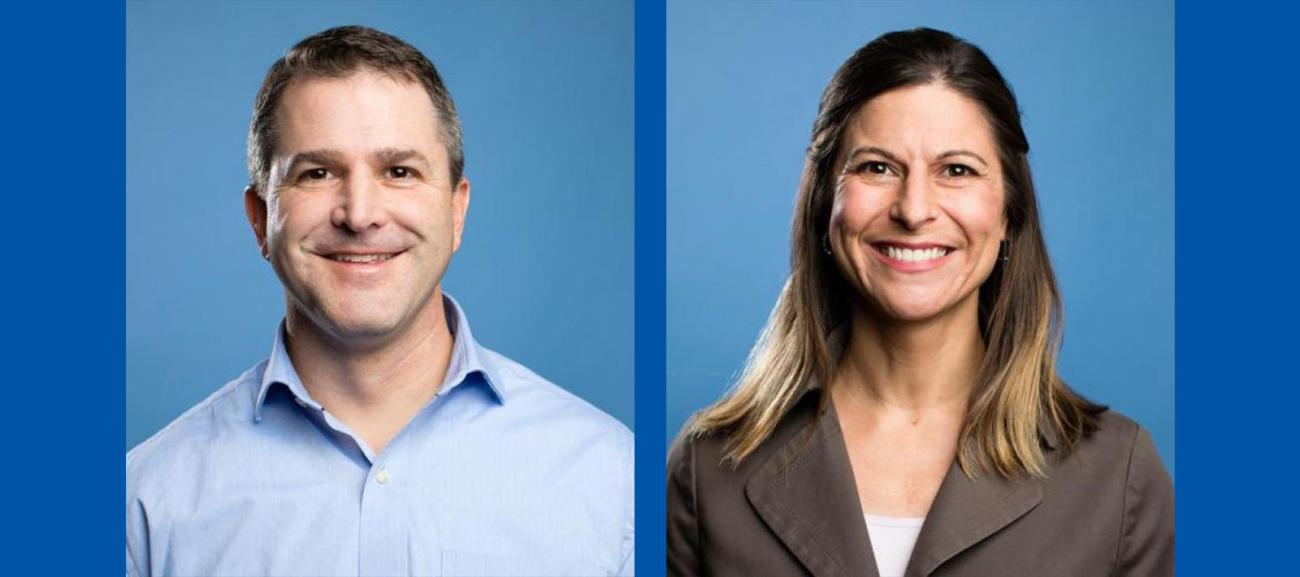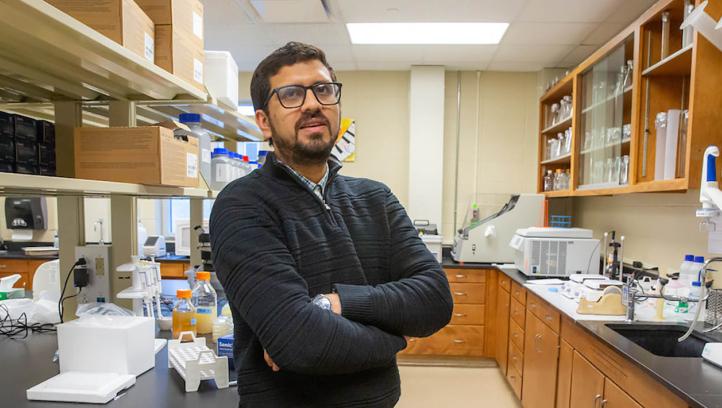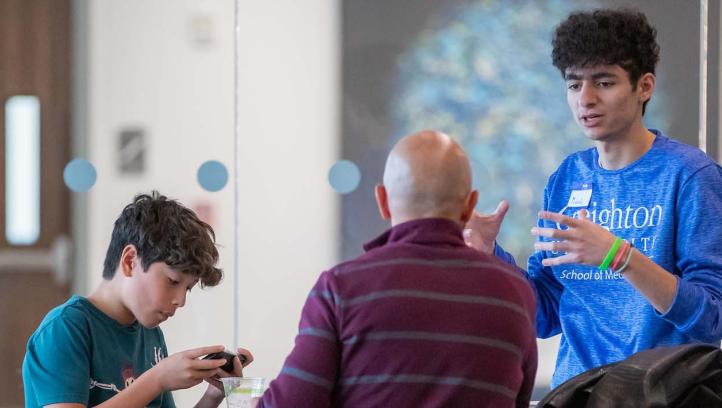
Battle against epilepsy finds leadership at Creighton

Each year, according to the Epilepsy Foundation, approximately one person in 1,000 living with controlled epilepsy dies suddenly from a seizure, while one in 150 suffering uncontrolled seizures experiences the same fate.
It is called SUDEP — Sudden Unexplained Death in Epilepsy — and since 2011 the National Institutes of Health has turned to a Creighton husband-and-wife research team to help figure out what can be done.
Timothy Simeone, PhD, (pictured above left) and Kristina Simeone, PhD, (pictured above right) both associate professors in the Department of Pharmacology and Neuroscience, along with selected undergraduate and graduate students, have been continuously funded by the NIH and its National Institute of Neurological Disorders and Stroke for the past 12 years. The total entrusted to the Simeones so far stands at $5.6 million, with the latest grant of $1.8 million funding a 4½-year study titled “Autoresuscitation and SUDEP.”
SUDEP is neither well known nor much publicized, even though, according to the Epilepsy Foundation, more people die annually from it than from fire and from the much better known Sudden Infant Death Syndrome, combined.
SUDEP, says Kristina, has not often been a topic of conversation between clinicians and individuals suffering from epilepsy, probably because it is so unsettling, but transparency is important.
“After we started communicating with parent advocacy groups, we really tried to move the field away from secretiveness and make SUDEP something that, under certain stipulations, neurologists make sure their patients know about,” she says. “There are indicators they need to be on the lookout for.”
The Epilepsy Foundation reports that victims of SUDEP are often found dead in bed, often lying face down. Sometimes, there is no indication of a recent seizure, and sometimes there is. Researchers suspect irregular heart rhythm and breathing difficulties.
The Simeones’ new study, which addresses these issues, adds three Creighton undergraduate student researchers to the five already working on prior NIH studies, and focuses on whether the defense mechanisms that prevent sudden death deteriorate over time among epileptics; whether the circumstances that permit SUDEP are progressive; and, if these circumstances can be identified, proposing treatment strategies to prevent, or at least postpone SUDEP. Key to this effort will be identifying what the causes of breathing cessation might be and how people might snap back to normal breathing rates.
The Simeones use a genetic mouse model in which mice will develop spontaneous seizures, and all will die of SUDEP. The average age of death of these mice is known, so as they age it is possible to monitor for changes in respiration that indicate the onset of SUDEP.
“We hope to figure out what is causing sudden death. Our findings lead us to suspect something is wrong with autoresuscitation, the ability of the body to kickstart breathing and heart function after a prolonged apnea. The hope is to develop therapies or different manipulations that increase survival and lifespan,” Timothy says.
Gavin Latona, BS’23, a neuroscience graduate from Seattle, was among the undergraduate researchers. Latona says his involvement in undergraduate research gave him opportunities he never anticipated.
“Research has improved my critical thinking skills and has helped me become more attentive to details,” he says. “It has really improved my ability to communicate complex ideas in a simplified and digestible way.”
Shruthi Iyer, MS’16, who completed her Master of Science in Pharmaceutical Sciences at Creighton and has since enrolled in the doctoral program in pharmacology and neuroscience, is assisting in the research. Closely involved in the SUDEP study, and charged with monitoring undergraduate researchers, Iyer had a big moment in 2020 when a research paper she authored was selected as the best basic science research paper of the year by Epilepsia, the premier journal for all aspects of epilepsy.
“We have developed a 70-second respiratory test that challenges the system,” she says. “It helps determine if brain circuitry and respiratory circuitry are working well, enhancing the likelihood that the mice will autoresuscitate.”
Drugs are also being tested.
“We have given different types of drugs to see if we can improve the likelihood that they will recover,” Iyer says. We have found a novel treatment that increases their ability to autoresuscitate, so we are really excited about its potential in postponing or preventing SUDEP.”












